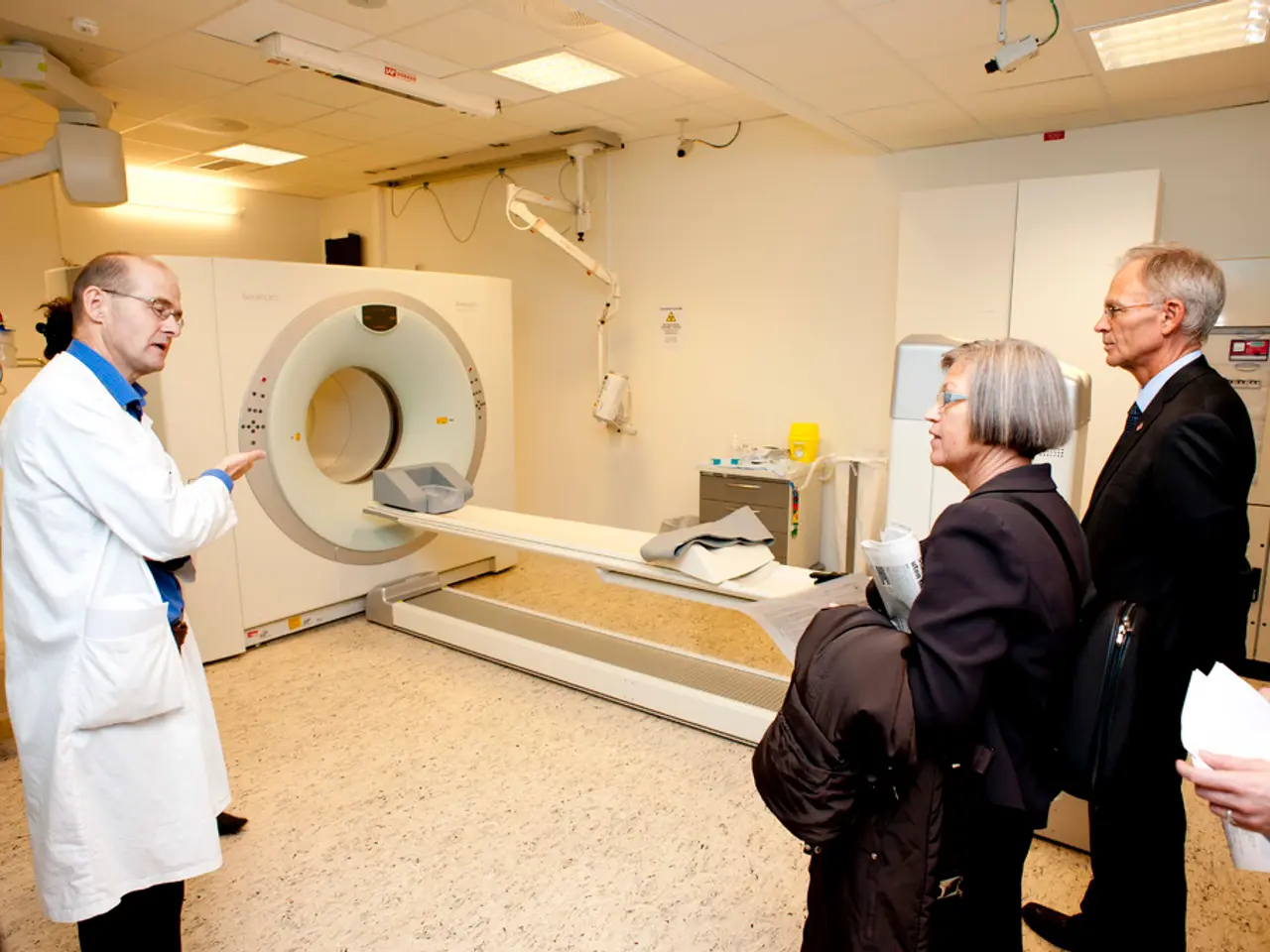Is It Secure to Undergo an MRI Scan With an Implantable Pacemaker or Medical Device?
In the realm of medical imaging, patients with implanted cardiac devices such as pacemakers, defibrillators, mechanical heart valves, and stents may face unique challenges. Understanding the safety considerations for MRI and CT scans is crucial for both patients and healthcare providers.
MRI Scans
MRI, or magnetic resonance imaging, uses strong magnetic fields that can interact with metallic implants. This interaction could affect device function, cause heating, and displace metal parts, potentially leading to complications.
For patients with implanted cardiac devices, including pacemakers and defibrillators, it is always advisable to consult a cardiologist or the device manufacturer before undergoing an MRI. New safety standards and technologies, such as Magnetic Resonance Output Conditioning (MROC), have been introduced to ensure safety limits are followed during scanning, reducing risks and human error.
The magnetic field strength limits relevant to pacemaker safety during MRI have been updated, with the previous 0.5 millitesla limit on magnetic field exposure increased to 0.9 millitesla to align better with manufacturer standards. Mechanical heart valves are generally considered safe for MRI at common field strengths used in clinical practice (1.5T and 3T).
CT Scans
CT scans, on the other hand, use X-rays rather than magnetic fields and thus do not pose the same risks with implanted cardiac metal devices. However, CT scans involve ionizing radiation and sometimes iodinated contrast agents, which carry their own risks, especially in patients with kidney disease or allergies.
There are generally no contraindications related to pacemakers, defibrillators, heart valves, or stents for CT scans, but patient history and clinical status should always be considered.
Key Safety Points
| Device Type | MRI Safety Considerations | CT Safety Considerations | |----------------------|------------------------------------------------------------|-----------------------------------------| | Pacemakers/Defibrillators | Possible magnetic interference; consult device specialists; use MRI-conditional devices or protocols; new MROC technology improves safety monitoring[3] | No magnetic risk but consider radiation and contrast risks[1] | | Mechanical Heart Valves | Generally safe at 1.5T and 3T MRI[5] | No specific contraindications[1] | | Stents | Usually safe, but depends on stent material; consult guidelines | No specific contraindications[1] |
Preparing for an MRI Scan
Before an MRI, patients should inform medical staff of all implanted devices, verify device MRI compatibility, follow any pre-MRI device programming instructions, and be monitored during and after the scan.
CT Scans
CT scans have fewer restrictions but still require appropriate clinical justification. Some larger devices, like left ventricular assist devices, some defibrillators, and pacemakers, can create dense streaks that partially obscure the images acquired with the CT scan.
In conclusion, MRI scans require strict safety evaluation and device-specific protocols for patients with implanted cardiac devices, whereas CT scans are generally safer in this context but carry other risks such as radiation exposure. Always consult with a cardiologist and radiologist before imaging procedures.
It is essential to keep the card provided when getting an implanted device, as it provides necessary information for safe MRI scans. Not having this information can delay the MRI scan indefinitely for safety reasons. Older pacemakers that are not MRI-conditional may not be routinely recommended for MRI scans. However, with advancements in technology, more recently, manufacturers have developed some pacemakers and defibrillators that can be scanned with an MRI. Radiologists and cardiologists have learned more about older devices, and in some cases, MRI scans can be performed safely on these patients.
Health and wellness encompass making informed decisions about medical procedures, like MRI and CT scans, for those with implanted cardiac devices. The safety of devices like pacemakers and defibrillators, for instance, needs careful consideration during MRI scans due to the potential interactions with magnetic fields, whereas CT scans present no magnetic risks (health, science). However, CT scans still involve ionizing radiation and contrast agents, which can pose risks for some patients (health-and-wellness). Therefore, consulting with a cardiologist or radiologist before any imaging procedures is crucial for both safety and optimal health outcomes.




